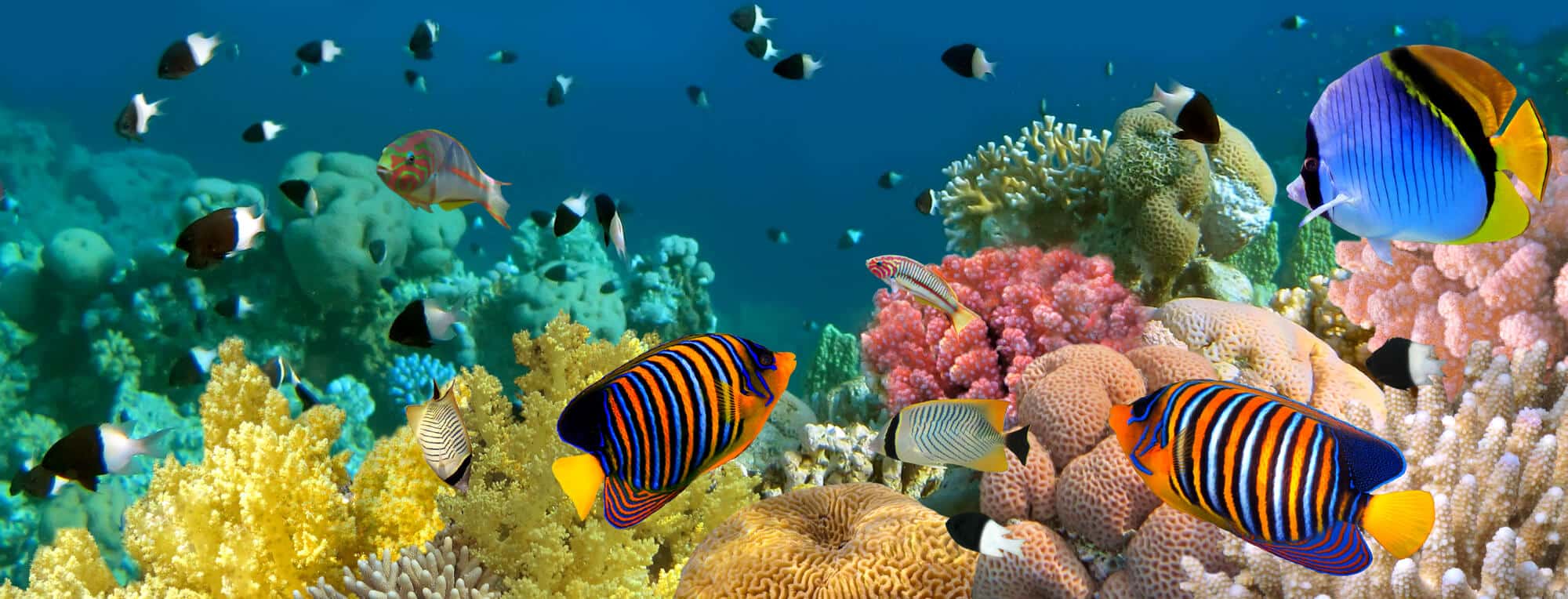
A joint study conducted at the university and the University of Technology Sydney Australia and published in the journal nature communications, found that preserving the genetic diversity of a large number of corals growing in different living conditions increases the chance of preserving their survival in different extreme conditions. "Contrary to what is common today, the findings of our research show for the first time that in order to preserve a healthy reef in extreme situations, it is necessary to preserve a wide variety of species that live in different environmental conditions and not focus only on 'super corals', as is currently the case," said Prof. Tali Mas from the school of marine sciences by Charni at the university, the authors of the study.
The coral reefs play a critical role in the ecosystem in the oceans and the various seas because they are a habitat for 25% of the animals in the sea. The rise in seawater temperature due to global warming and the increase in the level of acidity in seawater, a process called ocean acidification, poses a danger to the existence of coral reefs and hence, a danger to the balance of the extensive ecosystems that depend on the reefs.
Research today focuses on "super corals", corals that manage to grow in extreme conditions of high water temperature and high salinity, with the help of defense mechanisms they have developed. According to Prof. Mass, the accepted concept today claims that an understanding of the defense mechanisms of the "super corals" will make it possible to protect other reefs in other areas in the event of warming and acidification of the oceans. In the present study, Prof. Mass from the Leon Charney School of Marine Sciences at the university, along with a team of researchers from the Sedini University of Technology and the Charite University in Berlin, asked to test the genetic and morphological mechanisms of Porites lutea, a coral that grows on the reefs found in the mangrove forests in Australia. "In these areas there is a unique and extreme ecosystem. Corals grow in an environment where there is high temperature, high salinity and low acidity in the water. In fact, these are the conditions expected to be in the sea in the future as a result of the climate crisis. Examining the biological mechanisms by which corals grow and survive in extreme conditions will help us develop a policy to preserve coral reefs," explained Prof. Ms.
The results of the study show that the corals that grow in extreme conditions become very similar to each other genetically compared to corals that do not live in extreme conditions. An analysis of the coral's genetic expression shows that the coral transfers a lot of energy to preserve the physiological system under extreme conditions, which leads to a decrease in the coral's skeletal deposition rate.
However, it became clear in the research that the defense systems developed by these corals had a morphological price: these corals have a low skeleton density and are more brittle than the corals living in the natural environment. According to Prof. Mas, the great genetic similarity and the morphological prices of these corals may actually endanger the future of the reef, in a situation where The extreme situation will be different from the one they are exposed to today.
"The corals we studied have developed mechanisms that allow them to establish themselves in extreme environments of high temperature and high acidity, but of course we do not know what climate change has in store for us in the future and whether the next extreme event will have different characteristics. Because of the great genetic similarity created within the reef, if the corals fail to develop a mechanism for the new situation, the entire reef may die. Therefore, our conclusion is that the ability of the reefs to survive in different extreme situations depends precisely on genetic diversity and not on genetic similarity. "In a situation where the reef consists of corals with genetic diversity, the chance that there will be corals that will succeed in developing resistance to different and changing situations increases," concluded the researchers.
More of the topic in Hayadan:
- The scientists of the Weizmann Institute of Science discovered: the degree of pleasantness of smells is the basic scale according to which the perception of smell is organized
- to feed the world in a time of crisis
- We are all children of climate change
- Due to a winter with extremely high temperatures and a lack of cold rations, a decrease of about 40% in the summer fruit harvest is expected
- When will there be a vaccine for the corona virus? Four scenarios
